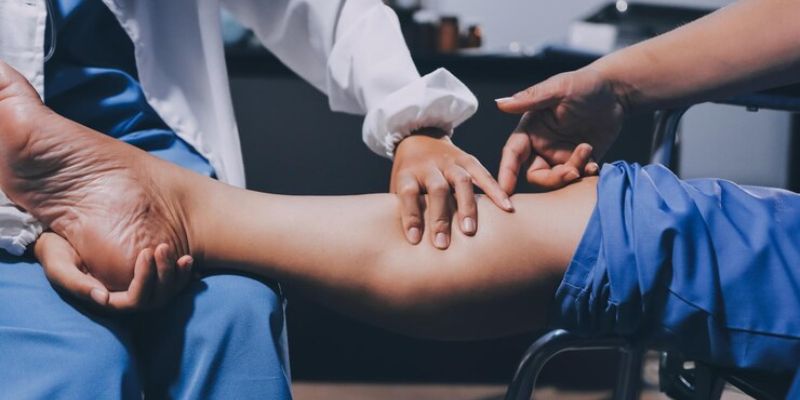As part of the effective way to manage lymphedema conditions, there is a special emphasis on wound care and management, as it is considered the key to the infected patient’s improvement and well-being.
No wonder, in most courses for lymphedema certification wound care is very prominent. Thus, lymphatic wound management training has become the fulcrum of most CLT certification programs.
Why does wound care matter so much?
As an incurable condition, lymphedema originates from the buildup of lymphatic fluid manifested by the swelling in the arms and legs. The wound management certification for lymphedema understands the challenges of the lymphedema condition, which shows up as the incapacity of the lymphatic system to clear out bacteria with vulnerability to many infections, including cellulitis.
Since wound care is vital in lymphedema treatment for preventing complications, better healing, and hiking the quality of life, wound care becomes a pivotal point in lymphedema care.
This remains so even in all types of settings–home based care or in clinics. The wound care regimen involves cleaning, moisturizing, and staying protected from injuries to prevent infections and reduce their recurrence.
Wound care methodologies in the curriculum
Various methodologies of patient care are provided in detail in the wound management certification curriculum. It is there in the courses run by the American Academy of Lymphatic and Wound Management too.
AALWM aims to deliver the best education and training in lymphatic therapy and wound management. The AALWM course transforms the career prospects with evidence-based lymphedema certification courses in online and in-person formats. The modules are so designed that the learner will not have to spend more time away from home.
Course components geared for best outcomes
In terms of the span of training for the lymphedema care course, the mandated time is around 135 hours. The coursework on wound management certification for lymphedema goes through the anatomy, physiology, and pathology of the lymphatic system and drainage techniques.

The course content imparts to the learners the skills to handle various types of lymphedemas in different parts of the body and their mitigation via compression therapy using bandaging and garments.
Those with experience in fields such as RN, OT, PT, MD, or massage therapy with considerable hours of training are eligible to join the lymphedema certification courses. In some programs the learner will be permitted for practical live sessions only after completion of home study online modules.
To conclude, wound management certification for lymphedema care is a structured training program with intensive online modules demanding rigorous home study covering theoretical aspects of the anatomy, physiology, and pathology of the lymphatic system and usage of CDT components.

